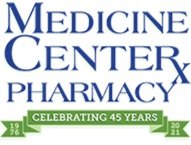Heart disease is the leading cause of death for both men and women in the United States. The good news? It is also one of the most preventable. Making heart-healthy choices, knowing your family health history and the risk factors for heart disease, having regular check-ups and working with your physician to manage your health are all integral aspects of saving lives from this often silent killer. FEBRUARY IS HEART HEALTH MONTH. Make a difference in your community by spreading the word about strategies for preventing heart disease and encouraging those around you to have their hearts check and commit to heart-healthy lives.
from http://www.theheartfoundation.org/heart-disease-facts/heart-awareness-month/
The continual process of managing diabetes can be cumbersome, time consuming, expensive and frustrating. Research and technology has improved the tools to be less invasive and more convenient and has also created less expensive items options. Meters and strips are available from many manufacturers, all using technology that accurately measure your blood sugar. Many people stay with one manufacturer and pay whatever price this company charges for their supplies. Some find less expensive options by talking with their doctor or pharmacist.
It is important to be diligent and consistent in monitoring and treating diabetes. We encourage everyone to ask there pharmacist how they can make it easier for you to continue managing your diabetes by finding more convenient, less expensive or alternative methods to monitor the condition.
At our pharmacies, we offer EasyMax meters and test strips. We have found these to be an excellent value, especially in the long term. Strips are a daily expense that can quickly add up. EasyMax strips cost only 16 cents each, saving you money everytime you choose EasyMax over more expensive compititors.
Sources:
http://www.diabetes.org/advocacy/news-events/cost-of-diabetes.html
http://www.diabetes.org/living-with-diabetes/treatment-and-care/blood-glucose-control/checking-your-blood-glucose.html
http://www.diabetesforecast.org/2012/jul/anatomy-of-a-test-strip.html
Are you or someone you love diabetic?
Stop by one of our Diabetes events to see how we can improve your life!
January 24: New Philadelphia
Ready or not, winter is right around the corner! The winter winds don't just blow in snow... for many people, winter brings about a wide range of health concerns that normally would not trouble us in warmer weather. Luckily, we aren't totally at the mercy of Mother Nature. Keep reading for some supplements that can help keep you happy and healthy until the spring sun shines.
(Note: Even though supplements come from a “natural” source, they can still interact with prescription medications and have effects on your health. Always consult with your doctor before starting any new supplements.)
Vitamin D
Vitamin D is a vitamin that is essential to our functioning, but unlike other vitamins, is not naturally present in many foods. Vitamin D is sometimes known as “the sunshine vitamin” because our body produces its own vitamin D when the sun hits our skin. When the days get shorter and the winter winds are blowing, we don't get as much sun as we do in the summer months. Making sure you get the proper amount of vitamin D helps keep your bones healthy and strong, as well as possibly help to keep your nervous, immune, and cardiovascular systems functioning.
Vitamin C
Vitamin C seems to be the go-to supplement to ward off winter colds and other bugs. The citrus fruits such as oranges and grapefruit where we get much of our dietary vitamin C can be in short supply in the winter, putting you at risk for deficiency. Low vitamin C levels can weaken your immune system and make you susceptible to a wide array of illnesses. Some evidence suggests that taking higher doses of vitamin C may slightly reduce the duration of a cold, but this is still up for debate. You'll get the most benefit out of vitamin C if you make sure you get enough of it regularly instead of taking a mega-dose after you're already sick.
Glucosamine and Chondroitin
Anyone with joint pain knows that the chill and dampness of winter can settle in and wreak havoc on aching joints. Glucosamine and chondroitin are natural components of your joint cartilage. Taking these as a supplement may help relieve joint pain from arthritis. Don't expect a miracle cure, though; benefits from these supplements seem to be modest and can take a few weeks to work.
Vitamin E
The harsh winter weather can pack quite a punch against your skin; decreased humidity, drinking less water than in the summer, and poorer circulation due to the cold can leave your skin dry and itchy. Vitamin E may help keep your skin healthy. Luckily, many foods we eat are rich in vitamin E and it's unlikely that you would become deficient. Instead of taking a vitamin E supplement, you can try putting vitamin E oil on your suffering skin. The oil, which can be found either by itself or in many lotions, may be a helpful moisturizer as well as provide your skin with needed antioxidants to protect against damage.
Omega-3 Fatty Acids
Omega-3 may be a jack of all trades when it comes to helping ease your winter woes. This fatty acid commonly found in fish oil may help promote circulation; this not only helps keep your fingers and toes warm, but may help keep your skin healthy and hydrated as well. There is also some evidence to suggest that omega-3 may help promote joint health, an added benefit for aches and pains aggravated by the cold.
You can find these supplements and many more at your local Medicine Center Pharmacy. Stop on in today to talk with the pharmacist and start living well.
Save money on your over-the-counter products. BOGO on Health Mart brand items. Huge variety of items available!
Posted by Medicine Center Pharmacy on Wednesday, November 16, 2016
Lower Cost from Less Advertising
How many commercials do you see every day for typical products like soaps, lotions and medicines? Many large companies spend millions of dollars on advertising; a cost that makes their product more expensive and your expense higher. Instead of paying more for a fancy label and catchy commercials, try a store brand item and save some money. If you are worried that the store brand item may differ from a known brand, simply compare the ingredients list.
Better Selection
If you consider store brand items as you shop, you have a wider selection of items to help you find the right product. Store brand products can offer unique options not available in national brands. If you save money by purchasing a less expensive item, you have more to spend on other items for yourself and your family.
Supports Competition
Competition means more options and competition in the marketplace. If a national brand decides to discontinue one of their products or variants, store brand and less advertised products offer viable alternatives. Smaller brands can also create and sell new or niche products that national brands don't offer.
Whether you are looking to save money or trying to find the right product for your needs, take a look at store brand, generic and less advertised options. We think you will like what you find.
The leaves are changing, the air is getting crisp, and pumpkin-flavored goodies are hitting the shelves. This can only mean one thing... flu season is upon us. Keep reading for answers to some of the most common questions about the flu and the flu vaccine.
Is the flu really that serious?
Yes. The flu can cause serious illness, hospitalization, and even death. It's estimated that the flu causes up to 200,000 hospitalizations in the United States each year and is the most frequent cause of death from a vaccine-preventable disease.
Who should get the flu shot?
The Centers for Disease Control (CDC) recommends everyone six months of age and older without a severe, life-threatening allergy to the vaccine get their flu shot every year. Talk to your doctor before getting the vaccine if you have an allergy to eggs or have ever had Guillain-Barré Syndrome.
Does the flu shot work right away?
No. It takes about two weeks after vaccination for your body to build up the immunity to protect you against the flu virus.
When should I get the flu shot? How long will the flu shot last?
You can get the flu shot as soon as it becomes available. While the peak of flu season is between December and March, the flu can hit as early as October and as late as May... this is why it's recommended that you receive the flu vaccine early, preferably by October. The vaccine lasts about a year, so don't worry about getting the vaccine too early and being exposed to the flu later in the season.
If you missed getting your vaccine in the fall, it's never too late to get yourself protected. You can get the flu shot at any point in the flu season as long as the vaccine is still available.
Will getting the flu shot cause me to get the flu?
Definitely not. The flu shot is made from an inactive form of the virus, so it's impossible for the vaccine to cause the flu. Often times symptoms from another illness are confused for the flu. However, it does take two weeks for the vaccine to work. If you were exposed to the flu before or during these two weeks, it is possible to get the flu... but this is not a result of the vaccine.
Are any of the available flu vaccines recommended over the others?
There is no preference for one injectable vaccine over another. In previous years a vaccine given as a nasal spray was available... this method is no longer recommended due to concerns that it is not as effective as the injections.
I've been feeling sick lately... can I still get the flu shot?
Wait to get the flu shot until you're feeling better, do not have a fever, and are off any antibiotics.
Sources:
http://www.cdc.gov/flu/about/season/flu-season-2016-2017.htm






















